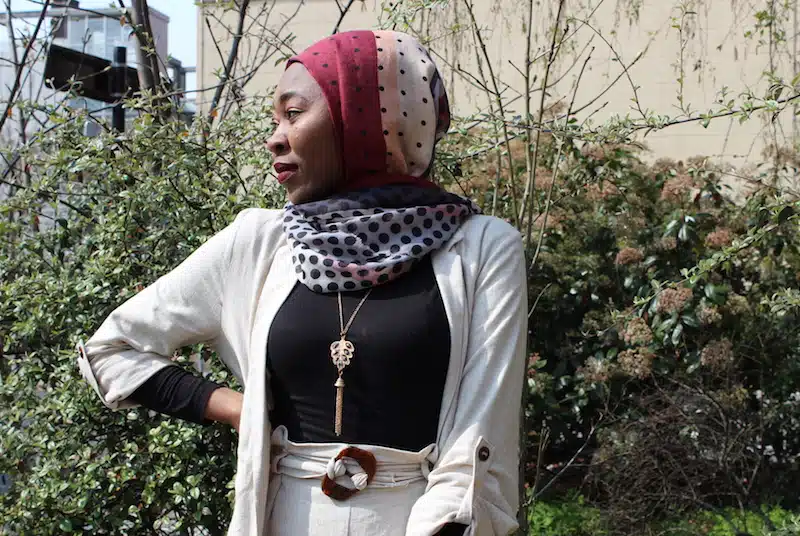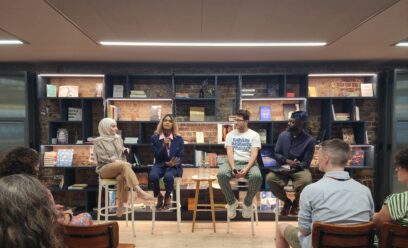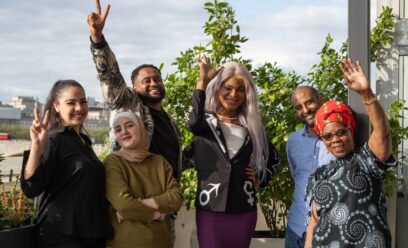Safeguarding and consent: helping people tell their stories
Posted by IMIX on July 17, 2019
Image by Counterpoints Arts
All good comms people know that facts and figures don’t persuade, and that real experience is key to changing people’s attitudes, but how do you do it responsibly? For us, it’s all about informed consent and safeguarding.
Safeguarding is often something we hear about but struggle to explain what it means. In basic terms, safeguarding is about the right to be protected from harm and to be safe. For most organisations it is important to have a detailed policy which guides how you operate and enables you to report back to authorities, funders and communities on how you are providing a safe environment for children and vulnerable adults. There are lots of great examples of safeguarding policies like the one from the Hammersmith and Fulham Refugees Welcome and lots of good information about how to make sure you understand safeguarding from organisations like Papyrus Project.
When it comes to sharing stories of experts by experience, particularly people who are refugees, are seeking asylum or have been detained, many of us worry about safeguarding and the legal and technical implications of someone being more visible to authorities and/ or the community they live in.
While its vital that we consider whether there is a risk of someone being harmed or not feeling safe because of telling their story, it’s not just for us to decide. It is really the choice of the expert by experience.
There is a growing understanding that sharing experiences can empower people if done in a careful and sympathetic way. Many people feel that sharing their experience is an important part of their healing and recovery and that safeguarding gets in the way of them being able to do this. Within organisations, we worry about the potential negative impact that storytelling can have, particularly when a person’s legal status is not confirmed. Interestingly, we’ve seen a lot of examples where people have been given status based on a media piece, so it’s not always unhelpful!
One way of working through this dilemma is going through a consent form with the person who wants to tell their story. Done well, completing a consent form is not a tick box exercise it really helps both you and the expert by experience decide whether talking publicly about their journey is helpful or harmful.
Getting consent takes time and during the process the person you are seeking consent from might change their mind. This is a good thing. If by going through the form, someone decides they are not ready to go public with their experiences, the process has worked! Throughout my career working with experts by experience, I have often found that people want to share their story to please me or the organisation I worked for. This is not a good reason to share a story. Some have wanted to speak out, so others feel less isolated or to make a real difference, which are much better reasons! But there still needs to be a discussion on what sharing a personal story means.
Fifteen years ago, you could tell your story to a local paper, it would be read by people in your community and that would pretty much be it. Now, if you share your story with, for example, The Grantham Journal, the reporter might not only put it in the paper but also pop the story on the Journal’s Facebook page, and then readers might share it with their Facebook friends. While this is great for The Grantham Journal, it might not work for your expert by experience who didn’t realise their former colleagues in DRC were going to read it. A big part of the consent journey is understanding that once something is public, there is no stopping it from appearing elsewhere. These days, ‘elsewhere’ is borderless social media.
Quite often we are asked to help someone tell their stories anonymously. While we can try, it can be difficult to strip out enough detail to fully protect someone’s identity and keep enough information to make the story interesting for the reader or viewer. Increasingly, media outlets want to share images and names to encourage empathy and interest. So, while not impossible, it can be difficult to tell anonymous stories.
When someone has been confident to tell their story to the media, we’ve seen the enormous impact that this can have. It is worth the time and effort it takes to carefully work through the story and gain consent. From the Windrush generation sharing their experiences of being mistreated by the Home Office to Refugee Week ambassadors writing with brutal honesty for the Huff Post – stories from experts by experience often bring benefit to the teller and others in similar situations. These stories also bring authentic voices to campaigns and help build momentum in the calls for change.



